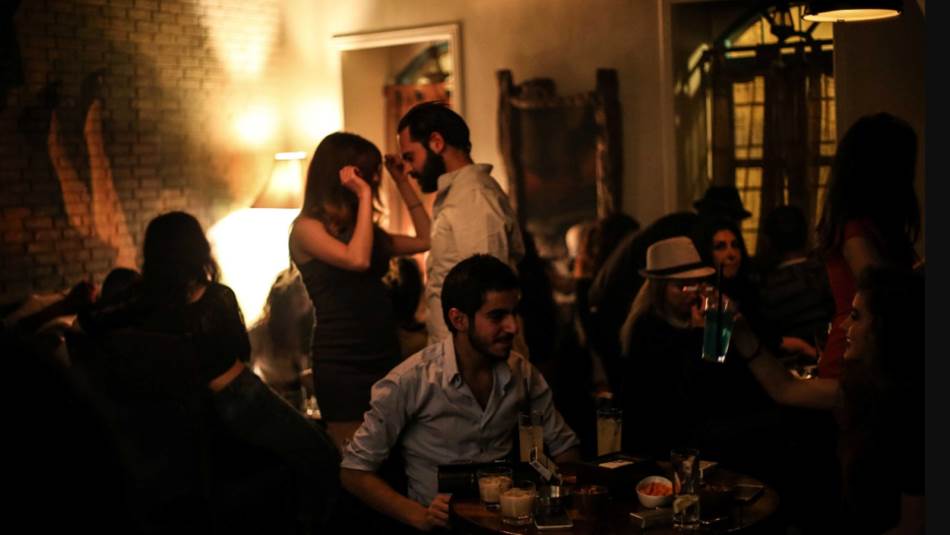A leaked surveillance video circulating on Syrian social media has sparked widespread outrage after showing a violent raid by unidentified gunmen on the Layali al-Sharq nightclub and casino, located near Al-Muhafaza Square in central Damascus.
In response, the Interior Ministry announced that security forces had launched an immediate investigation, identifying and arresting the individuals seen in the video. The suspects have reportedly been referred to the judiciary.
The ministry reaffirmed that the rule of law remains the foundation of governance in Syria, and vowed that any attack on citizens or public venues would be met with strict legal action.
Scenes of Brutality and Targeted Violence
The video shows armed men storming the club and violently assaulting patrons and staff, particularly women, using batons and rifle butts. One woman is seen collapsing to the ground after receiving a blow that nearly rendered her unconscious, while terrified screams fill the footage.
Although the violence was indiscriminate, the footage reveals a clear gendered pattern: men were forcibly removed from the venue, but women were subjected to disproportionately violent physical assaults. The incident has been widely described by activists as “mob justice disguised as moral enforcement.”
No Evidence of a Security Threat
Some observers suggested the raid might have been justified had there been an imminent threat—such as a terrorist incident or hostage situation. However, the video shows no signs of such circumstances. Instead, the raid appears to have been a deliberate act of aggression against unarmed civilians without any legal procedure such as arrest or formal detention.
In cases where raids are legally warranted, Syrian law requires clear protocols—respecting the rights and dignity of those involved, and avoiding excessive use of force. The chaotic and violent nature of this operation, in contrast, amounts to an unlawful and potentially criminal assault.
No Arrests Made, Motives in Question
Notably, the attackers did not arrest or detain anyone, nor did they attempt to document the incident as part of a law enforcement procedure. This has raised serious doubts about whether the perpetrators were official security personnel. With no apparent charges or legal basis, and the venue being a licensed, operating nightclub, the raid has been widely interpreted as an act of extrajudicial “moral punishment.”
Public Condemnation and Legal Violations
The incident has provoked widespread condemnation across Syria and abroad, especially given that violence was disproportionately directed at women. No comparable level of force was used against male patrons, who were merely pushed out.
Under Syrian law, any raid on a private establishment must be conducted with a written warrant from the Public Prosecutor, clearly stating the grounds and authorising entity. Even in cases of alleged violations—such as prostitution or employment of minors, as rumoured online—official police procedures must include documentation, a legally authorised search, and the presence of a regular police unit. None of these steps were observed.
Legal Framework and Human Rights Concerns
The Syrian Penal Code criminalises physical assault in the absence of legal justification, including cases framed under the banner of protecting public morality. Law No. 10 of 1961, which criminalises prostitution, does not grant security agencies—or any unofficial groups—the authority to act independently or violently.
Legal experts and human rights advocates stress that any alleged infractions at nightlife venues must be addressed through clear, lawful procedures that uphold human dignity, not through covert, violent raids conducted in the dark.
A Historic Venue Turned Crime Scene
Layali al-Sharq, formerly known as Casino al-Sharq, is one of Damascus’s oldest and most iconic nightlife venues. Founded in 1951 by businessman Tawfiq Haboubati, it was a cultural and political hotspot in the 1950s and 1960s, hosting figures such as U.S. President Richard Nixon and legendary singer Umm Kulthum.
The club closed in the 1970s, later reopened, and was purchased by businessman Muwaffaq Qaddah in 2009 before being sold to Samer Foz. It currently operates under the name Layali al-Sharq Restaurant, offering live music and entertainment.
This article was translated and edited by The Syrian Observer. The Syrian Observer has not verified the content of this story. Responsibility for the information and views set out in this article lies entirely with the author.


